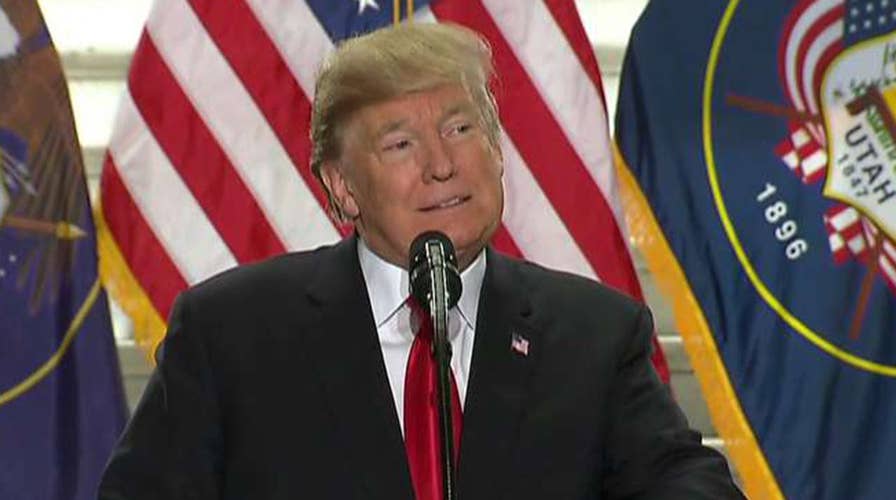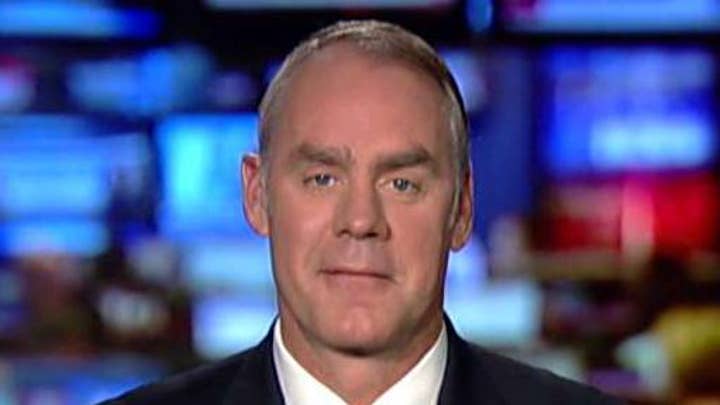Trump: Utah's land should not be controlled by Washington
President announces proclamations to modify national monument designations of Bears Ears and Grand Staircase-Escalante.
A plan to name a highway in Utah after President Donald Trump for his controversial decision to shrink two national monuments got a green-light from a panel of state lawmakers on Monday.
The initiative was proposed by Republican state Rep. Mike Noel, who said the idea sparked hundreds of emails to lawmakers.
"President Trump cares about the public lands. President Trump's family cares about the public lands and he cares about Utah and what we're thinking," he said.
TRUMP SHRINKS UTAH MONUMENTS CREATED BY OBAMA, CLINTON
Under the plan, National Parks Highway that overlaps multiple roads connecting well-known parks would be renamed after Trump. The initiative was cleared by a legislative committee in a 9-2 vote and now heads to the House floor.
The Sierra Club, an environmentalist group in Utah, opposes the move, saying the president does not deserve the honor for reducing the size of national monuments. "I don't think people are going to be willing to drive on a road with his name on it," said Wendy Garvin, with the Utah Progressive Caucus.
The proposal comes after Trump announced in December that two national monuments in Utah – the Bears Ears National Monument and Grand Staircase-Escalante National Monument – will be significantly downsized.
"No one values the splendor of Utah more than you do," Trump told the crowd during the announcement last year. ”And no one knows better how to use it."
The president said the sprawling national monuments were a “massive federal land grab” by the government under Democratic presidents Bill Clinton and Barack Obama. Both monuments were protected under the Antiquities Act.
“These abuses of the Antiquities Act give enormous power to faraway bureaucrats at the expense of the people who actually live here, work here and make this place their home," Trump added.
Native American tribes and environmentalists condemned Trump’s decision, claiming the monuments protected rich natural and archaeological resources.
Republicans in the state, meanwhile, welcomed the move to shrink the monuments because it limited what can be done with the millions of acres they encompass.
The Associated Press contributed to this report.






